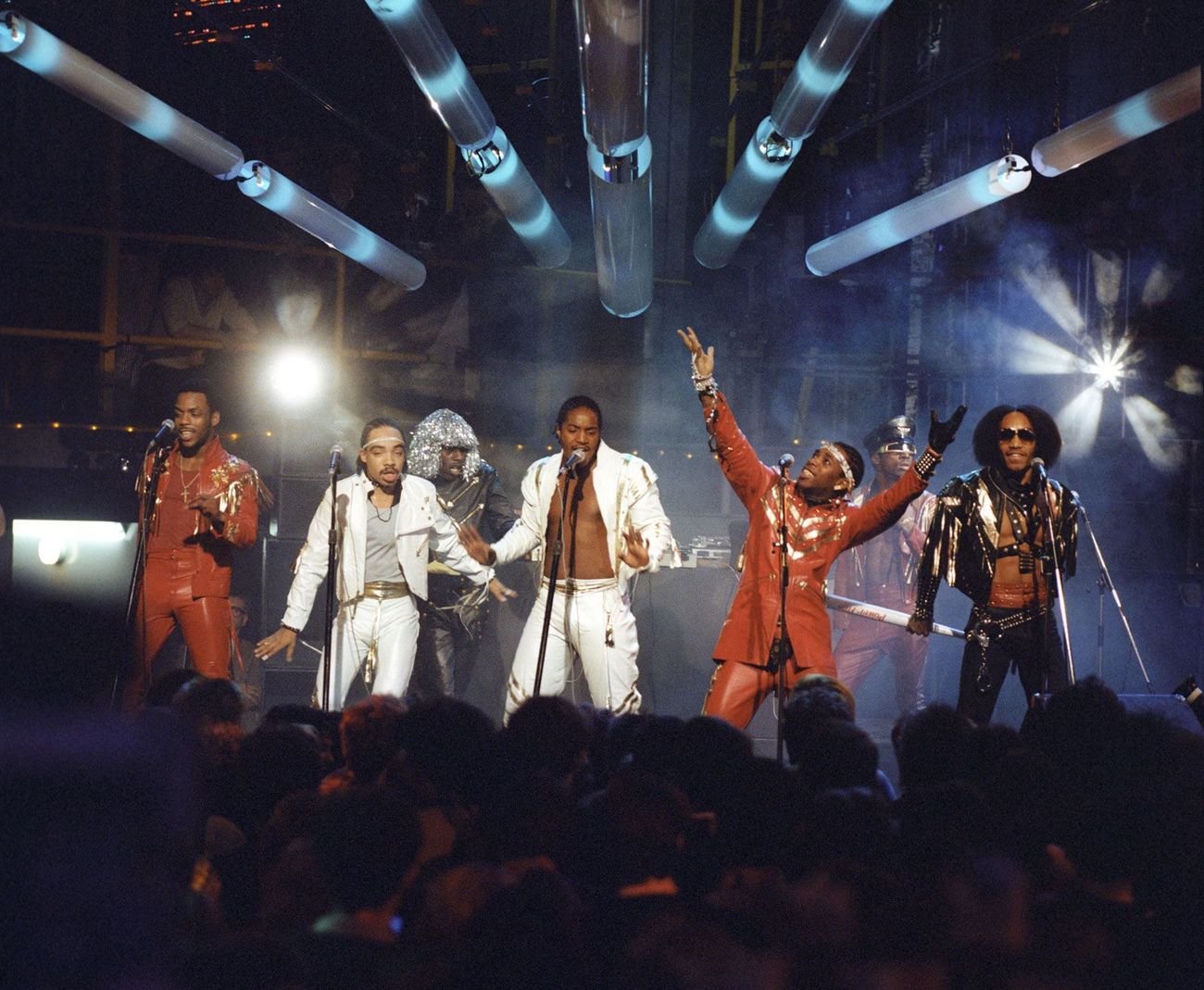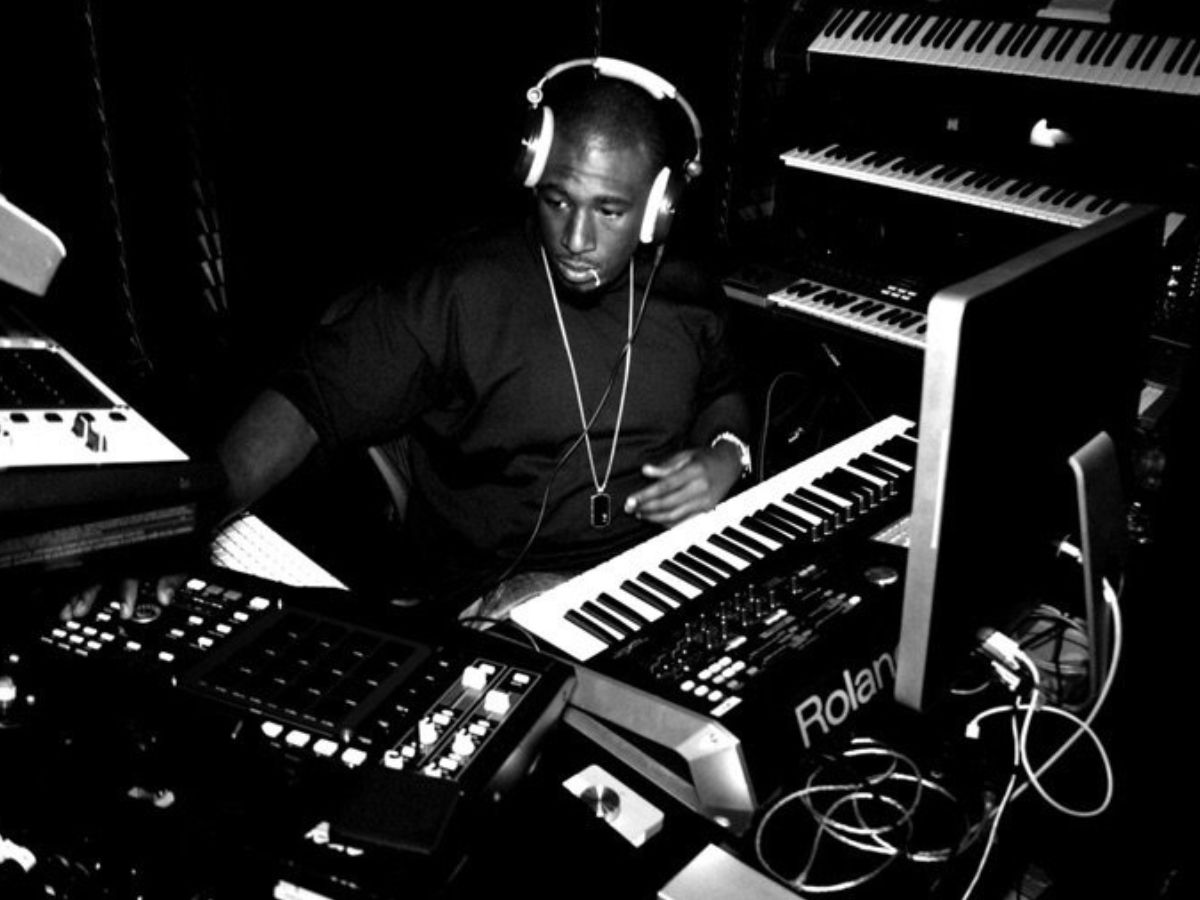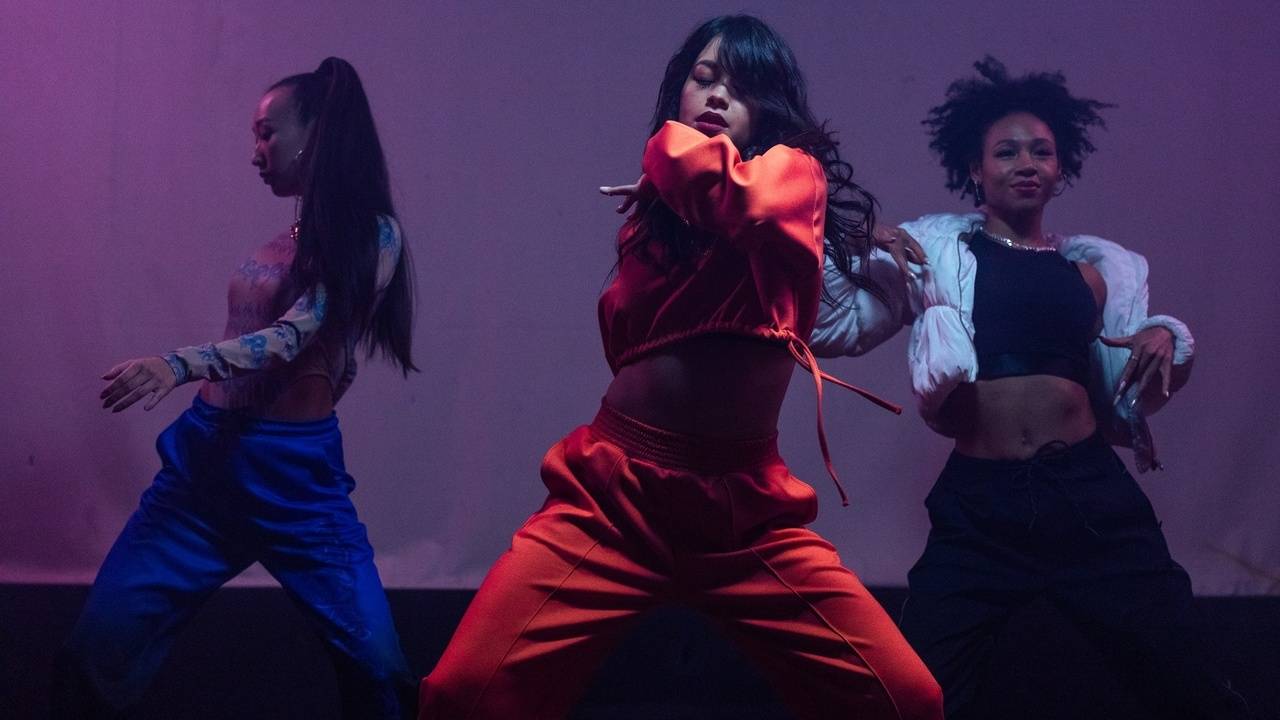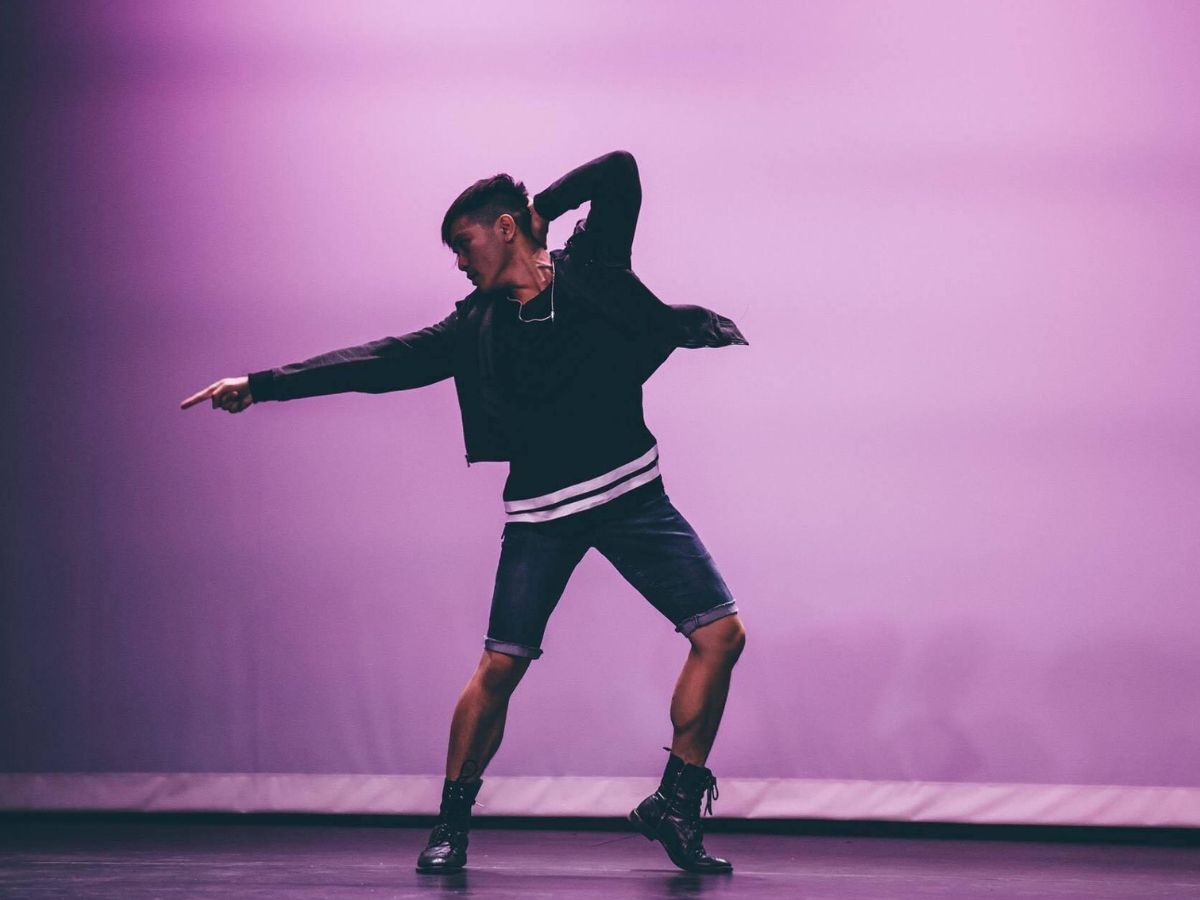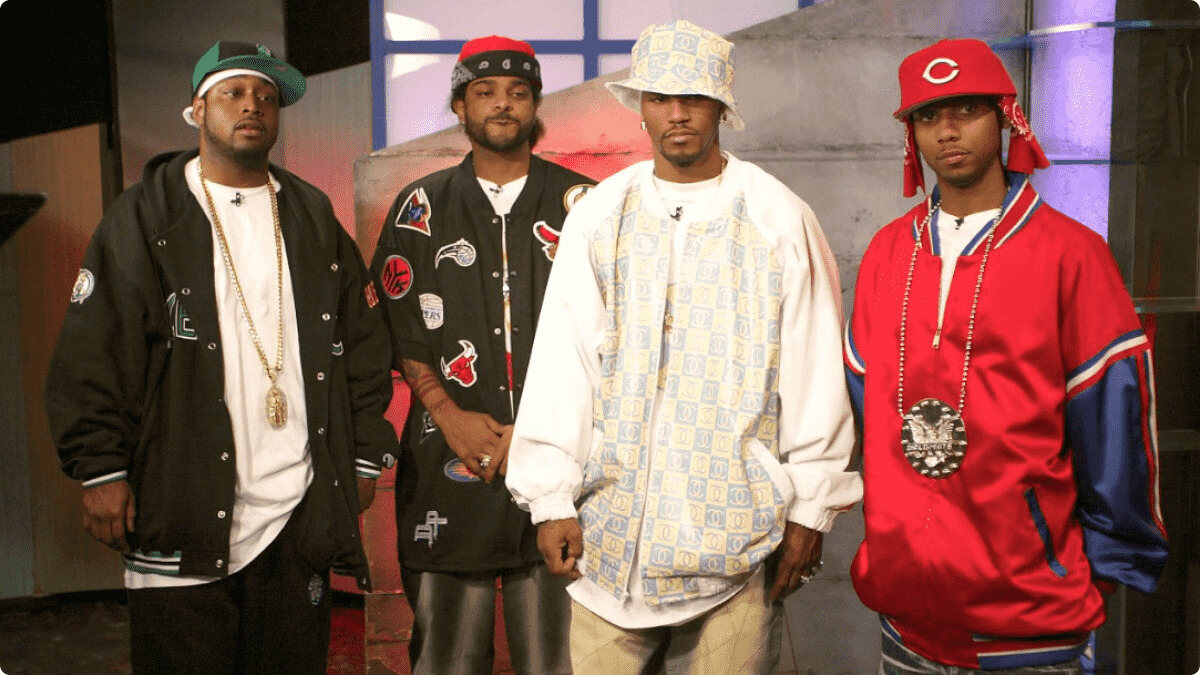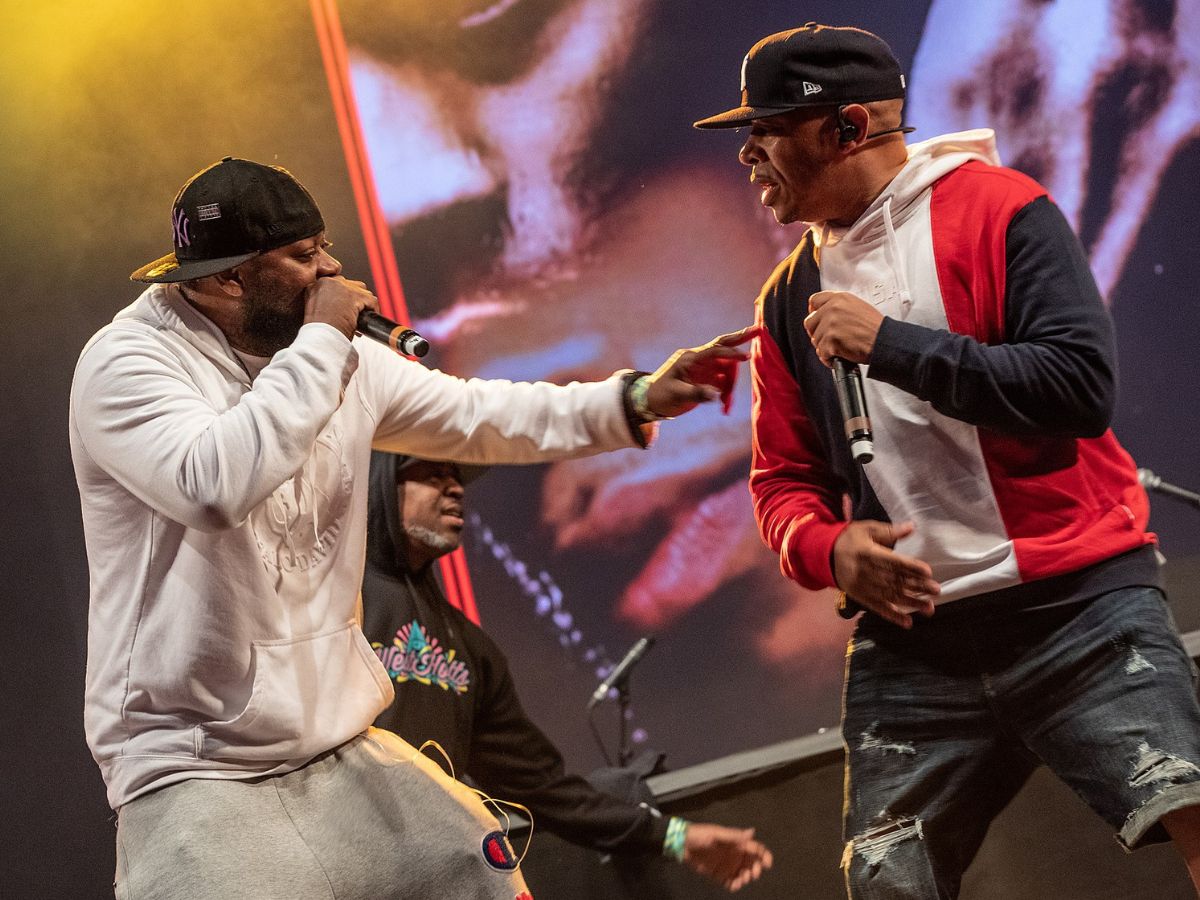Home>Devices & Equipment>Streaming>How Streaming Music Changed Hip Hop
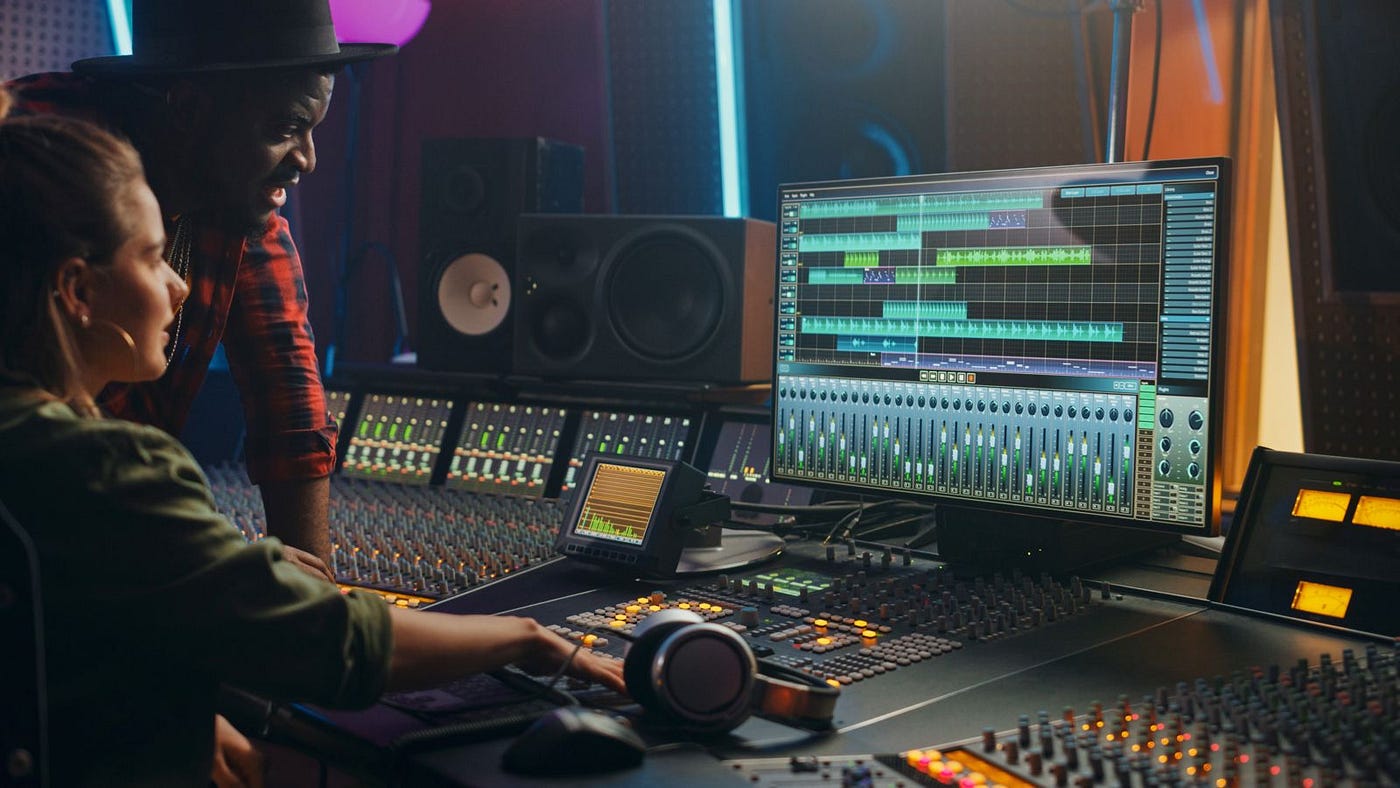

Streaming
How Streaming Music Changed Hip Hop
Published: March 7, 2024
Discover how streaming has revolutionized the hip hop industry, transforming the way music is consumed and distributed. Explore the impact of streaming on hip hop culture.
(Many of the links in this article redirect to a specific reviewed product. Your purchase of these products through affiliate links helps to generate commission for AudioLover.com, at no extra cost. Learn more)
Table of Contents
Introduction
The advent of streaming music has revolutionized the way people consume and interact with music. This technological advancement has not only transformed the music industry but has also significantly impacted various music genres, including hip hop. Streaming platforms such as Spotify, Apple Music, and Tidal have become the primary channels through which music enthusiasts discover, share, and engage with their favorite artists and songs. The rise of streaming has ushered in a new era of accessibility, convenience, and diversity in music consumption, fundamentally altering the dynamics of the hip hop genre.
Streaming platforms have democratized the music industry, providing independent hip hop artists with unprecedented opportunities to showcase their talent and reach a global audience. The traditional barriers to entry, such as securing record deals and radio airplay, have been dismantled, allowing emerging hip hop artists to independently release their music and connect directly with fans. This shift has fostered a more inclusive and diverse hip hop landscape, enabling a multitude of voices and perspectives to flourish within the genre.
Moreover, the algorithms and personalized playlists offered by streaming platforms have played a pivotal role in reshaping the way listeners discover new hip hop music. These platforms utilize data-driven insights to curate tailored recommendations, introducing audiences to a wide array of hip hop subgenres, underground artists, and regional movements. As a result, listeners are exposed to a rich tapestry of hip hop expressions, transcending geographical boundaries and traditional marketing constraints.
The impact of streaming on hip hop extends beyond the realm of music distribution and consumption. It has redefined the metrics of success within the genre, with streaming numbers and playlist placements carrying substantial weight in determining an artist's influence and commercial viability. This shift has prompted hip hop artists to adapt their creative strategies, focusing on crafting singles and albums that resonate with streaming audiences while maintaining artistic integrity.
In essence, the rise of streaming music has catalyzed a paradigm shift in the hip hop landscape, empowering artists, diversifying the genre, and redefining the dynamics of music discovery and promotion. As we delve deeper into the transformative influence of streaming on hip hop, it becomes evident that this technological evolution has indelibly altered the trajectory of the genre, shaping its present and undoubtedly influencing its future.
The Rise of Streaming Platforms
The emergence of streaming platforms has heralded a new era in the music industry, fundamentally transforming the way people access, discover, and engage with music. With the proliferation of platforms such as Spotify, Apple Music, and Tidal, listeners have transcended the limitations of physical music collections and traditional radio broadcasts, embracing the boundless convenience and diversity offered by streaming services.
Streaming platforms have democratized music consumption, offering users instant access to an extensive catalog of songs, albums, and playlists at their fingertips. This unparalleled accessibility has empowered music enthusiasts to explore a myriad of genres, including hip hop, without constraints imposed by physical media or geographic boundaries. As a result, hip hop artists have gained unprecedented visibility and exposure, reaching audiences on a global scale and transcending traditional industry gatekeepers.
Moreover, the advent of personalized playlists and algorithm-driven recommendations has revolutionized the music discovery process. Streaming platforms leverage user data and listening habits to curate tailored playlists, introducing listeners to a diverse array of hip hop subgenres, emerging artists, and underground movements. This personalized approach has not only enriched the listening experience for audiences but has also provided a platform for lesser-known hip hop artists to garner attention and recognition based on the merit of their artistry.
Furthermore, streaming platforms have redefined the dynamics of music promotion and distribution, particularly for independent hip hop artists. With the ability to independently release music on these platforms, artists have circumvented the traditional barriers to entry, such as securing record deals and radio airplay. This shift has fostered a more inclusive and diverse hip hop landscape, allowing a multitude of voices and perspectives to flourish within the genre.
The rise of streaming platforms has also reshaped the metrics of success within the hip hop genre. Streaming numbers and playlist placements now hold substantial influence in determining an artist's commercial viability and impact. As a result, hip hop artists have adapted their creative strategies, focusing on crafting music that resonates with streaming audiences while maintaining artistic integrity.
In essence, the rise of streaming platforms has not only revolutionized music consumption but has also catalyzed a paradigm shift in the hip hop landscape. The accessibility, diversity, and democratization facilitated by streaming services have empowered hip hop artists, diversified the genre, and redefined the dynamics of music discovery and promotion. This transformative evolution continues to shape the present and future of hip hop, underscoring the profound impact of streaming on the genre's trajectory.
Impact on Hip Hop Artists
The impact of streaming on hip hop artists has been profound, reshaping the dynamics of music creation, promotion, and audience engagement. With the democratization of music distribution facilitated by streaming platforms, independent hip hop artists have experienced a seismic shift in their ability to reach and connect with audiences on a global scale. This newfound accessibility has empowered artists to release their music independently, circumventing the traditional barriers imposed by major record labels and radio airplay.
Furthermore, streaming platforms have redefined the metrics of success within the hip hop genre. The emphasis on streaming numbers and playlist placements has prompted artists to adapt their creative strategies, focusing on crafting music that resonates with streaming audiences while maintaining artistic integrity. This shift has led to a renaissance of creativity within the hip hop landscape, as artists navigate the intersection of commercial appeal and artistic expression in the streaming era.
Moreover, the data-driven nature of streaming platforms has provided hip hop artists with invaluable insights into their audience demographics, listening habits, and geographic reach. Armed with this information, artists can tailor their marketing and promotional efforts to effectively engage with their fan base and expand their reach to new listeners. This level of direct engagement and data-driven decision-making was previously unprecedented in the music industry, offering artists a deeper understanding of their audience and the means to cultivate a loyal and expansive fan base.
Additionally, streaming platforms have facilitated collaborative opportunities for hip hop artists, enabling cross-promotion and featured placements on popular playlists. This collaborative ecosystem has fostered a sense of community and interconnectedness within the hip hop community, allowing artists to leverage the platform's reach to amplify their presence and connect with like-minded creators and audiences.
In essence, the impact of streaming on hip hop artists extends beyond mere distribution and consumption; it has fundamentally altered the way artists create, promote, and engage with their audience. The democratization of music release, the redefinition of success metrics, the access to audience insights, and the collaborative opportunities afforded by streaming platforms have collectively empowered hip hop artists, fostering a dynamic and inclusive environment for creative expression and audience connection. As the streaming landscape continues to evolve, its impact on hip hop artists will undoubtedly shape the trajectory of the genre for years to come.
Changes in Music Consumption
The advent of streaming platforms has precipitated a paradigm shift in the way audiences consume music, particularly within the realm of hip hop. Traditional modes of music consumption, such as physical album purchases and radio airplay, have been supplanted by the on-demand accessibility and personalized curation offered by streaming services. This transformation has not only redefined the dynamics of music discovery but has also fundamentally altered the patterns of engagement and interaction between listeners and hip hop music.
Streaming platforms have democratized music consumption, liberating audiences from the constraints of physical media and geographical limitations. Listeners can now access an extensive catalog of hip hop music at their fingertips, transcending traditional barriers to entry and exploring a diverse array of artists, subgenres, and regional movements. This unparalleled accessibility has engendered a culture of musical exploration and discovery, allowing audiences to delve into the rich tapestry of hip hop expressions from around the world.
Moreover, the algorithm-driven recommendations and personalized playlists offered by streaming platforms have revolutionized the music discovery process. Through the analysis of user data and listening habits, these platforms curate tailored recommendations, introducing listeners to a myriad of hip hop subgenres, emerging artists, and underground movements. This personalized approach has not only broadened the musical horizons of audiences but has also provided a platform for lesser-known hip hop artists to garner attention and recognition based on the merit of their artistry, rather than traditional marketing prowess.
The shift towards streaming has also redefined the metrics of success within the hip hop genre. Streaming numbers and playlist placements now carry substantial weight in determining an artist's influence and commercial viability. This evolution has prompted hip hop artists to adapt their creative strategies, focusing on crafting music that resonates with streaming audiences while maintaining artistic integrity. As a result, the sonic landscape of hip hop has evolved to cater to the preferences and consumption patterns of streaming audiences, leading to a diversification of styles and a renaissance of creativity within the genre.
In essence, the changes in music consumption brought about by streaming platforms have not only revolutionized the accessibility and diversity of hip hop music but have also redefined the parameters of engagement and success within the genre. The democratization of music access, the personalized curation of content, and the reevaluation of success metrics have collectively reshaped the way audiences consume and interact with hip hop music, underscoring the transformative influence of streaming on the cultural and sonic fabric of the genre.
Influence on Hip Hop Culture
The influence of streaming on hip hop culture transcends mere shifts in music consumption and artist promotion; it permeates the very fabric of the genre's cultural dynamics and societal impact. Streaming platforms have become pivotal conduits for the dissemination of hip hop culture, fostering a global interconnectedness that transcends geographical boundaries and cultural barriers. This interconnectedness has engendered a renaissance of cultural exchange, enabling hip hop to evolve from a regional phenomenon to a global movement, with diverse voices and narratives resonating across continents.
Streaming platforms have facilitated the proliferation of hip hop culture, serving as virtual hubs for artistic expression, community engagement, and socio-political discourse. Through curated playlists, documentaries, and original content, these platforms have elevated the visibility of hip hop's cultural elements, including its visual art, fashion, dance, and socio-political commentary. As a result, hip hop culture has transcended the confines of music, permeating popular culture and societal conversations on a global scale.
Moreover, the democratization of music distribution and the removal of traditional gatekeepers have empowered a diverse array of hip hop artists to share their unique cultural perspectives with a global audience. This democratization has led to the amplification of underrepresented voices within hip hop, fostering a more inclusive and representative cultural landscape. Streaming platforms have become catalysts for cultural preservation and innovation, enabling the proliferation of regional hip hop subgenres, linguistic diversity, and narratives that authentically reflect the lived experiences of artists and communities.
Furthermore, the data-driven nature of streaming platforms has provided insights into the global reach and cultural resonance of hip hop music and its associated elements. This data has not only informed marketing strategies but has also shed light on the cross-cultural impact of hip hop, transcending linguistic and geographical barriers to unite audiences under the banner of a shared cultural experience.
In essence, the influence of streaming on hip hop culture extends far beyond music, shaping the cultural zeitgeist and societal narratives. The global interconnectedness, amplification of diverse voices, and preservation of cultural authenticity facilitated by streaming platforms have elevated hip hop culture to a transcendent and unifying force, underscoring its profound influence on the cultural landscape of the 21st century.
Conclusion
In conclusion, the transformative impact of streaming music on hip hop has reshaped the genre's trajectory, cultural resonance, and artistic dynamics. The rise of streaming platforms has democratized music distribution, providing independent hip hop artists with unprecedented opportunities to showcase their talent and reach a global audience. This shift has fostered a more inclusive and diverse hip hop landscape, enabling a multitude of voices and perspectives to flourish within the genre.
Moreover, streaming platforms have redefined the metrics of success within the hip hop genre, with streaming numbers and playlist placements carrying substantial weight in determining an artist's influence and commercial viability. This evolution has prompted hip hop artists to adapt their creative strategies, focusing on crafting music that resonates with streaming audiences while maintaining artistic integrity.
The changes in music consumption brought about by streaming platforms have not only revolutionized the accessibility and diversity of hip hop music but have also redefined the parameters of engagement and success within the genre. The democratization of music access, the personalized curation of content, and the reevaluation of success metrics have collectively reshaped the way audiences consume and interact with hip hop music, underscoring the transformative influence of streaming on the cultural and sonic fabric of the genre.
Furthermore, the influence of streaming on hip hop culture transcends mere shifts in music consumption and artist promotion; it permeates the very fabric of the genre's cultural dynamics and societal impact. Streaming platforms have become pivotal conduits for the dissemination of hip hop culture, fostering a global interconnectedness that transcends geographical boundaries and cultural barriers.
In essence, the influence of streaming on hip hop culture extends far beyond music, shaping the cultural zeitgeist and societal narratives. The global interconnectedness, amplification of diverse voices, and preservation of cultural authenticity facilitated by streaming platforms have elevated hip hop culture to a transcendent and unifying force, underscoring its profound influence on the cultural landscape of the 21st century.
As the streaming landscape continues to evolve, its impact on hip hop artists, music consumption, and cultural resonance will undoubtedly shape the trajectory of the genre for years to come, solidifying streaming music as a cornerstone of hip hop's evolution and global impact.

